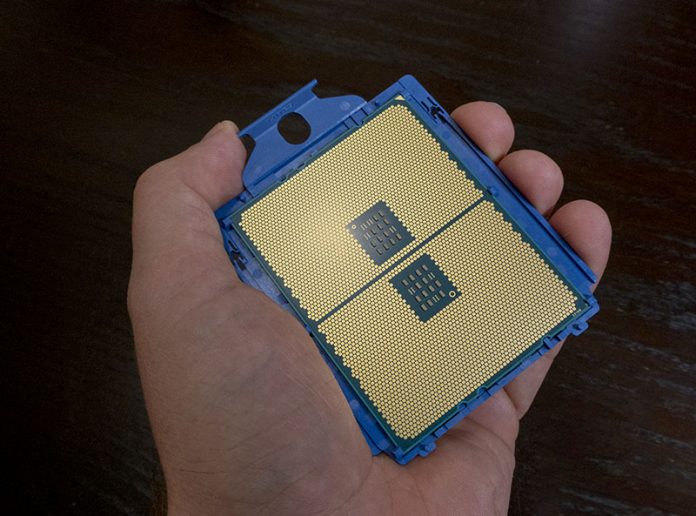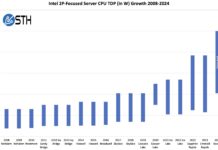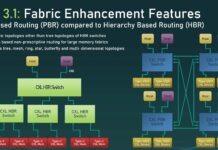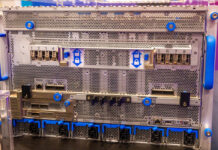At Oracle OpenWorld 2018 Oracle announced the availability of an intriguing new instance type. The new Oracle E series will be AMD EPYC based and will start with a standard E2 instance. We wanted to cover this because it has a few unique features in the announcement.
Cloud providers announce new instance types all the time, but this announcement is different. Oracle is announcing the immediate availability of the new AMD EPYC bare metal instances. Other vendors, announced EPYC, but the announcements were not of day 0 general availability. See Microsoft Azure Lv2 Series Instances Feature AMD EPYC as an example.
Another unique aspect is that Oracle’s bare metal instances are 64 core servers. That implies dual 32 core AMD EPYC chips and the company is showing AMD EPYC 7551 in their performance testing. Packet’s Dell EMC PowerEdge AMD EPYC Server Deployment uses single socket Dell EMC PowerEdge nodes.

AMD and Oracle are positioning the EPYC instances as HPC compute instances. As we head towards SC18 in November, we expect to hear more AMD EPYC HPC announcements. The company will follow with VM instances as well as part of the E2 line.
Although it is not part of this announcement, we are hearing rumors of an Oracle X7 series server powered by AMD EPYC as well. Perhaps based on this URL text “Oracle X7 powered by AMD EPYC”.
Excerpt from the Oracle AMD EPYC Bare Metal Instance Announcement
Here is a curated excerpt from the press release that STH was sent regarding the announcement:
Today at Oracle OpenWorld 2018, AMD (NASDAQ: AMD) announced the availability of the first AMD EPYC processor-based instance on Oracle Cloud Infrastructure. With this announcement, Oracle becomes the largest public cloud provider to have a Bare Metal version of AMD EPYC processors. The AMD EPYC processor “E” series will lead with the bare metal, Standard “E2”, available immediately as the first instance type within the Series. At $0.03/Core hour, the AMD EPYC instance is up to 66 percent less on average per core than general purpose instances offered by the competition and is the most cost-effective instance available on any public cloud.
“With the launch of the AMD instance, Oracle has once again demonstrated that we are focused on getting the best value and performance to our customers,” said Clay Magouyrk, senior vice president, software development, Oracle Cloud Infrastructure. “At greater than 269 GB/Sec, the AMD EPYC platform, offers the highest memory bandwidth of any public cloud instance. Combined with increased performance, these cost advantages help customers maximize their IT dollars as they make the move to the cloud.”
In addition to the bare metal offering, today’s release also features the one, two, four and eight core VM Shapes. The new offering takes advantage of the industry leading core count, memory bandwidth, I/O capability, as well as advanced security features that come with the AMD EPYC processor. While ideal for general purpose cloud computing workloads, the offering also supports Oracle applications…
With 64 cores per server and up to 33 percent more memory channels than comparable x86 instances the Standard E2 instance is ideally suited for data analytics workloads that demand higher cores and memory bandwidth.
(Source: AMD and Oracle)
Oracle AMD EPYC Bare Metal Availability
Oracle says that the AMD EPYC based bare metal instances are generally available in Oracle Cloud Infrastructure’s U.S. East-Ashburn region today. From there they will spread out to London by the end of the month. Other U.S. and European regions will have bare metal AMD EPYC by the end of the year.




